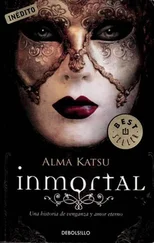“Oh, silly girl, do not tell me you’ve set your heart on him.” She took me by the shoulders and gave me a shake. “You cannot hope to wed the captain’s boy. Jonathan’s family would never allow it, never, nor would your father abide it. I am sorry to be the one to tell you this hard, hard truth…”
She didn’t have to. Logically, I knew that our families were unequal and I knew that Jonathan’s mother had high hopes as far as her children’s marriages were concerned. But a girl’s dreams are near impossible to kill and I’d harbored this one for as long as I could remember; it seemed I was born with the desire to be with Jonathan. I’d always secretly believed that a love as fierce and true as mine would be rewarded in the end, and now I was being forced to accept the bitter truth.
My mother returned to her work, picking up the long stick to stir the clothing in the boiling water. “Your father means to begin searching for a match for you, and so you see why you must end your friendship. We have to find your match before we make matches for your sisters,” she continued, “so you understand the importance of this, don’t you, Lanore? You do not want your sisters to end up unwed, do you?”
“No, Mother,” I said, dispirited. I was still turned away from her, looking off in the distance, willing myself not to cry, when I noticed movement in the forest beyond our house. It could be anything, benign or dangerous-my father and siblings returning from the hay field, someone traveling between farms, deer picking at greenery. My eyes followed the figure until I could make it out, large and dark, a graceful shimmering blackness. Not a bear. A horse and rider. There was only one true black horse in the village and it belonged to Jonathan. Why would Jonathan be riding out this way if not to see me, but he had passed beyond our house and was headed in the direction of our neighbors, the recently wed Jeremiah and Sophia Jacobs. I could think of no reason for Jonathan to call upon Jeremiah, none at all.
I raised a hand to tuck a few loose curls under my cap. “Mother, didn’t you say Jeremiah Jacobs was not at home this week? Has he gone away?”
“Yes, he has,” she said absently, stirring the pot. “He has gone to Fort Kent to look at a pair of draft horses and told your father he would return next week.”
“And he’s left Sophia by herself, has he?” The shimmering figure had slipped beyond my vision into the darkness of the woods.
My mother murmured in agreement. “Yes, but he knows there’s no reason to worry. Sophia is safe on her own for a week.” She lifted the wet garment out of the pot by the stick, a steaming, dripping mass. I took it from her and carried it under the tree, where we wrung the wool out together. “Promise me you will give up on Jonathan and will seek his company no more,” was the last she said on the matter. But my mind was on our neighbor’s tiny saltbox, Jonathan’s horse waiting restlessly outside.
“I promise,” I said to my mother, lying glibly, as though it meant nothing at all.

As autumn deepened and the leaves turned russet and gold, the love affair between Jonathan and Sophia Jacobs did not abate. During those weeks, my encounters with Jonathan were rarer than ever and painfully brief. While it wasn’t all Sophia’s fault-Jonathan and I each suffered demands on our time-I blamed Sophia entirely. What right had she to get so much of his attention? As far as I could see, she didn’t deserve his company. Her worst sin was that she was married, and by pursuing this relationship, she was forcing Jonathan to compromise his Christian morals. She was condemning him to hell along with herself.
But the reasons she didn’t deserve him did not stop there. Sophia was hardly the prettiest girl in the village; by my count, there were at least twenty girls comparable in age who were prettier than she, even if I excluded myself from this group on the basis of modesty. Further, she had neither the social position nor the wealth that would make her a suitable companion for a man of Jonathan’s status. Her housekeeping skills were lacking: her sewing was passable, but the pies she brought to church socials were pasty and unevenly cooked. Sophia was clever, without a doubt, but if one were pressed to pick the smartest woman in town, her name would not be among those to spring to mind. So what exactly was the basis for her claim over Jonathan, who should have only the best?
I spun the late summer flax contemplating this queer development, cursing him for being inconstant. After all, that day in the McDougals’ field, hadn’t he said he’d be jealous if I was to become attached to another boy in the village, and yet here he was secretly courting Sophia Jacobs. A less heartsick girl might have drawn conclusions from his behavior, but I wouldn’t, preferring to believe that Jonathan would still choose me if he only knew my feelings. I wandered by myself after church services on Sundays, casting unanswered glances in Jonathan’s direction, hoping to tell him how badly I wanted him. I walked the trails that led to the St. Andrews’ house and wondered what Jonathan might be doing at that moment, and in my daydreams I tried to imagine the feel of Jonathan’s hands on my body, what it would be like to be pressed beneath him, raw from his kisses. I blush to think how innocent my view of love was then! I had a virgin’s conception of love as chaste and courtly.
Without Jonathan, I was lonely. It was a preview of what my life would be like once Jonathan was wed and took over his family’s business and I was married to another. Each of us would be drawn increasingly into our own orbits, paths destined never to cross. But that day had not come yet-and Sophia Jacobs was not Jonathan’s lawful wife. She was an interloper who’d staked a claim on his heart.
It was just after the first frost when Jonathan came out to see me one day. How different he looked, as though he’d aged years. Or maybe it was only that the gaiety in his demeanor had gone; he seemed serious, very adult. He found me in the hay field with my sisters, pitching the last of the hay left to dry in the summer sun into the barn, where we stored the alfalfa that would feed the cattle through the long winter.
“Let me help you,” he said, springing down from his horse. My sisters-dressed as was I in old clothes and with kerchiefs tied around our heads to keep our hair back-looked askance at him and giggled.
“Don’t be ridiculous,” I said, taking in his fine wool coat and doeskin breeches. Haying was miserable, sweaty work. Anyway, I was still smarting from his desertion and told myself I wanted nothing from him. “Just tell me what brings you out here,” I said.
“I’m afraid my words are meant for your ears only. May we at least walk a ways by ourselves…?” he asked, nodding at my sisters to show that he meant no disrespect. I threw my pitchfork to the ground and pulled off the gloves and started meandering in the direction of the woods.
He fell into step beside me, leading his horse by a slack rein. “Well, we haven’t seen each other in a while, have we?” he began in an unconvincing manner.
“I’ve no time for niceties,” I told him. “I have work to do.”
He abandoned his pretext altogether. “Ah, Lanny. I have never been able to fool you. I have missed your company, but that’s not why I’ve come out here today. I need your advice; I’m no good at judging my own problems and you always seem to see a way clear, no matter what’s at issue.”
“You can stop trying to flatter me,” I said, wiping my brow against a dirty sleeve. “I’m hardly King Solomon. There are far wiser people in this town you could turn to, so the fact that you have come to me means you are in trouble of some kind that you don’t dare share with anyone else. So, out with it-what have you done now?”
Читать дальше













